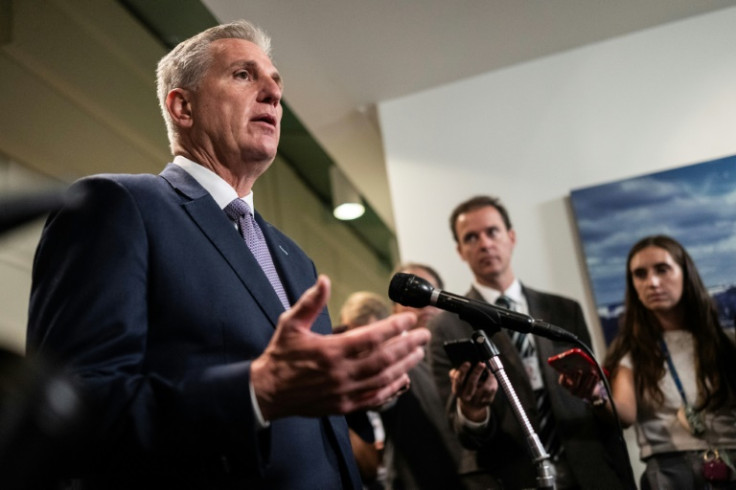
Last-gasp moves to prevent a US government shutdown took a dramatic step forward Saturday, as Democrats overwhelmingly backed an eleventh-hour Republican measure to keep federal funding going for 45 days, albeit with a freeze on aid to Ukraine.
The stopgap proposal adopted by the House of Representatives with a vote of 335-91 was pitched by Speaker Kevin McCarthy just hours before a midnight shutdown deadline that would have seen millions of federal employees and military personnel sent home or required to work without pay.
The deal still has to be approved by the Democrat-controlled Senate.
CNN quoted an administration official as saying the White House would likely support the bill in order to keep the government open with the expectation of being able to restore Ukraine aid later.
The shutdown crisis was largely triggered by a small group of hardline Republicans who had defied their own party leadership to scupper various temporary funding proposals as they pressed for deep spending cuts.
Saturday's agreement could end up costing McCarthy his job, as the hardliners had threatened to remove him as speaker if a stopgap measure they opposed was passed with Democrat support.
Pitching his last-gasp proposal, McCarthy had appealed to both Republicans and Democrats to "put your partisanship away" and dismissed the threat to his job.
"If somebody wants to remove (me) because I want to be the adult in the room, go ahead and try," he said.
The proposed plan would keep the government funded at current levels without the hardline-backed spending cuts that Democrats had viewed as a non-starter. But the lack of assistance for Ukraine was problematic.
Arming and funding Ukraine in its desperate war against the Russian invasion has been a key policy plank for President Joe Biden's administration and, while the stopgap is only temporary, it does raise questions over the political viability of renewing the multibillion-dollar flow of assistance.
The Democrat-controlled Senate had been prepared to vote on its own stopgap bill later Saturday -- one that did include funding for Ukraine.
"This is enough to keep the government open, and I'm not going to shut the government down over foreign aid," one House Democrat, Jared Moskowitz, told CNN, while making clear he was a strong supporter of Ukraine aid.
The freeze of all but critical government services had been set to start after midnight (0400 GMT Sunday), immediately delaying salaries for millions of federal employees and military personnel.
A shutdown would have meant the majority of national parks, for example -- from the iconic Yosemite and Yellowstone in the west to Florida's Everglades swamp -- would be closed to public access beginning Sunday.
With student loan payments resuming in October, officials also said Friday that key activities at the Federal Student Aid office would continue for a couple of weeks.
But a prolonged shutdown could cause bigger disruptions, percolating through the wider economy.




